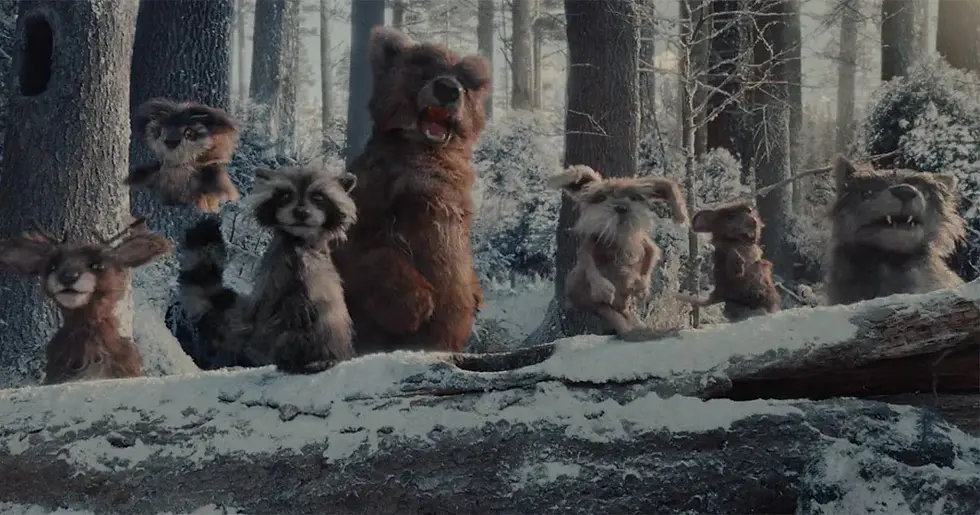5 LGBT Commercials That Challenged Established Norms
- ClickInsights

- Jul 21, 2022
- 3 min read
Commercials are usually a reflection of the society that we live in. And more often than not, these reflections project images built on the conventional notions of gender identity and sexuality. However, a few brands have been brave enough to present a more diverse worldview through their commercials in recent years.
So, here we are with the 5 best commercials on LGBT representations. While some of these commercials went quite viral, others weren’t as successful as they were way ahead of their time. But what unifies these commercials is their commitment to highlighting the LGBT community and challenging traditional thinking.
1. Vicks: Generations of Care
Although section 377, which criminalized homosexuality in India, has now been annulled, their struggle for several other rights continues. And this commercial is a beautiful yet poignant reminder of the sheer hardships the transgender people in the country have to endure.
The ad tells a true story of an orphan, Gayatri, who was adopted by a transgender, Gauri. In the commercial, Gayatri looks back at her life and tells us how she was adopted by Gauri after her biological mother was taken away in an ambulance. While we catch glimpses of Gauri throughout the ad, she is only fully revealed in the latter part of the commercial. We come to know through Gayatri that while Gauri wants her to become a doctor, she wants to become a lawyer so that she can fight for trans rights.
Gauri has been at the forefront of transgender rights in India for the last two decades. Her motto was to provide a space of freedom to all transgender people in Mumbai.
2. Ikea: Dining Room Table
Ikea became the first brand in 1994 to feature a gay couple in a TV commercial. While this was a landmark in itself, what really stood out was the casual depiction of the commercial.
There’s no shock factor or camp stereotyping but an honest depiction of two guys purchasing a table. To be honest, I wouldn’t have ever known that they were gay if this commercial hadn’t appeared in the search results while I was doing research for this blog.
3. Barneys New York: Brothers, Sisters, Sons & Daughters
The fashion industry has been at the forefront of embracing the LGBT community and it is evident from fashion brands that are increasingly diversifying the models that they use.
Barneys New York took a different route with its spring 2014 campaign that featured 17 transgender models. The campaign provided the models with the perfect platform to bring forth their stories and challenge stereotypes and preconceived notions. What’s more, the retailers also donated 10% of their profits from one day to two LGBT charities.
4. Google: City Gym
While life’s already difficult for people from LGBT communities, it is even more challenging for people who are born into one sex and transition to a different gender. And this ad from Google perfectly sums up this journey.
This deeply powerful film from Google tells the story of Jacob and the gym that helped him during his transition. The commercial’s dealing with the subject matter is honest and never makes the audience feel that the commercial is exploitative in any way.
5. Anouk: Bold is Beautiful
This commercial from Anouk was released in 2015 when homosexuality was still a crime in India. And that’s why the importance of this commercial can’t be overplayed.
The commercial showcases a young girl who is waiting for her parents to arrive so that she can tell them about her partner. This commercial is the Indian version of the Ikea commercial mentioned above. Like the Ikea ad, this commercial also doesn’t tell the audience explicitly that the girls are in a relationship. The safe approach was probably adopted to steer clear of any lawsuits, but a good attempt overall.
Bottom Line
While the LGBT people were almost absent from TV previously, brands today are making a conscious decision to be more inclusive towards them like these 5 brands mentioned above. Hopefully, more companies would soon follow suit and do whatever is necessary to break stereotypes and misconceptions about this marginalized community.



google 优化 seo技术+jingcheng-seo.com+秒收录;
Fortune Tiger Fortune Tiger;
Fortune Tiger Fortune Tiger;
Fortune Tiger Fortune Tiger;
Fortune Tiger Slots Fortune…
站群/ 站群
gamesimes gamesimes;
03topgame 03topgame
EPS Machine EPS Cutting…
EPS Machine EPS and…
EPP Machine EPP Shape…
Fortune Tiger Fortune Tiger;
EPS Machine EPS and…
betwin betwin;
777 777;
slots slots;
Fortune Tiger Fortune Tiger;